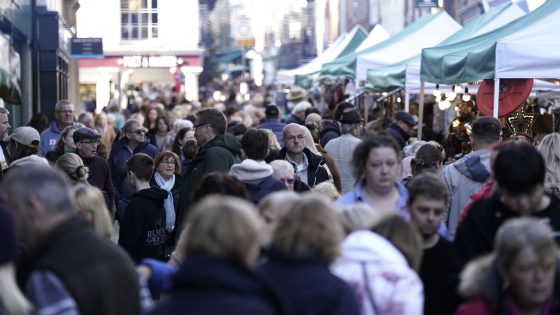Retail sales have grown significantly – far exceeding expectations – as consumer spending bounced back in January.
The 3.4% increase in retail sales is more than double the 1.5% rise forecast by analysts – and suggests the economy is recovering.
Not since April 2021 has there been a rise as large as the recovery from December to January.
On Thursday, the UK officially entered recession after two consecutive three-month periods of contraction – and poor retail performance was partly to blame.
The January bump in retail sales more than compensates for a shock fall in the key Christmas shopping month of December, where a 3.3% fall was recorded, after the number was revised downwards by the Office for National Statistics on Friday.
Money latest – Most stressful jobs to work in revealed; bank switching market is back – and you could get £175
January discounts helped household shops, department stores and sports shops achieve “robust” trade, the ONS added.
Volumes in all retail sectors grew, except clothing, but the biggest contribution to the growth was supermarkets, the ONS said. As a result, volumes returned to November 2023 levels.
One of the biggest rises came in fuel sales, which increased 5.4% in the month as motorists capitalised on a fall in fuel prices.
But sales are still 1.3% below the pre-pandemic level of February 2020.
Retail sales figures are of interest as household consumption, measured by the data, is the largest expenditure across the UK economy.
Accordingly, the statistic can be indicative of overall economic growth.
Less was spent online in the 30-day period than a month earlier. The proportion of online sales fell from 26.8% in December to 24.8% in January.
Friday’s release has led analysts to conclude the recession may have ended almost as soon as it began.
“Retail sales volumes in January will put an end to the retail recession and perhaps even to the wider economy recession in Q1”, said Joe Maher, assistant economist at economic research business Capital Economics.
“The strong pick up in sales suggests the worst is now behind the retail sector and falling inflation and rising wages in 2024 will provide a strong platform for recovery.”
Source Agencies


